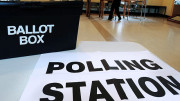It takes a lot for a book to distract me from other intellectual pursuits and make me put down (temporarily) books by other authors that I greatly admire, but Professor Goodwin’s book is without a doubt one of those books. I just could not put this book down and read it avidly and greedily whenever I got a chance, whether it was whilst eating my dinner or when supervising my son Laughing Boy in the playground. For me, this was a book that demanded to be read.
Values Voice and Virtue (ISBN13 9780241548387 ) is a gripping but in parts somewhat depressing tale of how Britain’s politics got hollowed out, the majority got ignored, a graduate elite was self- created and how British politics has been broken.
The book opens with a statement that those of us who have been interested in politics for decades may find difficult to disagree with. That statement is that British politics is ‘coming apart’.
Professor Goodwin is bang on correct here. I agree with him that the triple shocks to the Establishment namely the rise of populism, the election of Donald Trump and Britons’ choosing to leave the European Union have broken British politics but I believe this politics was broken before that and these shocks merely killed off old and trusted certainties.
Professor Goodwin’s data packed and highly readable book is wonderful. It take us through the shock to the system of the Brexit vote, where Britons put two fingers up at a liberal Establishment that was seen to be not governing in the interests of the majority of Britons. Professor Goodwin delves deeply into some of the demographic changes that have affected Britain, such as the drop in the importance of manufacturing from 50% of the economy in the 1950’s to a little more than 9% today and the domination of public sector management positions by women, many of whom have been educated in universities that themselves lean to the liberal left side of the political spectrum.
The esteemed professor also writes in great depth about how a new elite of graduates has been created and how this elite has self-selected its successors and colleagues and now control almost every commanding height of the culture and the state, from broadcasting to local government. The result of this domination, especially the domination of the organs of the perma-state such as the Civil Service and Local Government officers, is that no matter whom we elect, we get the same metropolitan, liberal left cadre of middle class progressive calling the shots. The views of others, such as the British working class, are either ignored, denigrated or in some cases, such as the dismay voiced by those who have to deal with the negative effects of mass immigration, demonised.
Professor Goodwin writes with great clarity about the state of British politics and how it has been affected by globalization. Globalization, Professor Goodwin says, has ‘de-politicised’ Britain. The political elite ’embraced’ globalization and by doing so they have created a situation where the political battleground between the parties is now incredibly small. There is now no meaningful difference between what’s on offer from the Conservative Party and what the Labour Party are offering. Professor Goodwin was very much correct to point out how globalization has negatively influenced things such as political choice.
Professor Goodwin is particularly good when he writes about values. He’s correct in stating that there is a great divide between the graduate elite who dominate politics, media, culture and administration and the views of the rest of society. There is now a divide, a serious one, between the metropolitan cosmopolitans in the media, politics and the arts, and the rest of the population who may have a more traditionalist view of things like marriage, social roles, immigration and the cult of trans. With the graduate elite filling politics, print and the airwaves with their own progressive metropolitan views, it has created a situation where only one view, that of the elite progressives gets heard and every other view on subjects as varied as immigration through gender to the culture in general is sidelined or ignored or demonised and lied about. We’ve ended up with a monoculture in public life and what’s worse, its a monoculture that is a creation of the elite and certainly not one that has been the choice of the ordinary Briton.
Professor Goodwin really hits the spot when he talks about how parties that were once synonymous with the British working classes, such as the Labour Party, have all but abandoned those in these classes. I agree here. You’d be very hard pushed these days to find a Labour campaigner, MP, councillor or activist standing up for the traditional working class Briton. It’s something the party no longer feels comfortable doing, despite the party being initially set up as a voice in Parliament for British workers. Now the party only mentions Britain’s working classes in passing and seems much more comfortable with speaking up in favour of minorities and promoting ideologies, for example transgenderism, that many people outside of the Labour Party have awkward questions about.
I was interested to read Professor Goodwin’s explanation of how a counter revolution has started, in order that the elite can fight back against the revolt of the masses as expressed in the Brexit vote. We can quite clearly see this counter-revolution in action with the actions of the Rejoiners in Parliament and the adminisphere along with the increasing censorship of those who speak counter to the narratives promoted by the elite. How this will end up is difficult to say but the battle between elites and people is getting and will continue to get much nastier and will probably involve much that we’ve already seen happening with regard to censorship, the demonisation of the working classes, the use of the police as a political weapon and the de-banking of critics, getting a whole lot worse. The elite have had much their own way over the last thirty years or so. This situation has been exacerbated by the fact that, unlike in some other European countries, there has not been in the UK credible Populist parties and politicians that the public can vote for. There has been no UK equivalent of the Rassemblement National in France or the Brothers of Italy or the Alternative For Germany. With the exception of the UK Independence Party, whose growth and support propelled former Conservative Prime Minister David Cameron to offer a Referendum on EU membership, challenger parties, mostly due to the British First Past the Post electoral system, remain extremely small and politically insignificant. However this might change in the future if more voters abandon the Big Three Westminster Parties out of disgust and either refuse to vote or say ‘sod the lot of them’ and vote for a challenger party.
To conclude: I’m finding this an incredibly difficult article to write because Professor Goodwin’s book just contains so much stuff that is worthwhile reading and digesting. It’s hard to know what to concentrate on in this review and what to leave out, there’s so much that is worthwhile in it.
What I will say is that this is one of those modern books that is an essential read, and what’s more it’s not just a book for political anoraks but a book for everyone who is concerned about the direction that the United Kingdom is going in at present. If you want to know why British politics is in the dire state that it is in, and how it got to be that way, but also how things can be turned around, then get a copy of this book and read it. I can’t promise you a gentle read or one that doesn’t raise the hackles. I can promise you that after you have finished it, you will have a far different view of things than you had before.





